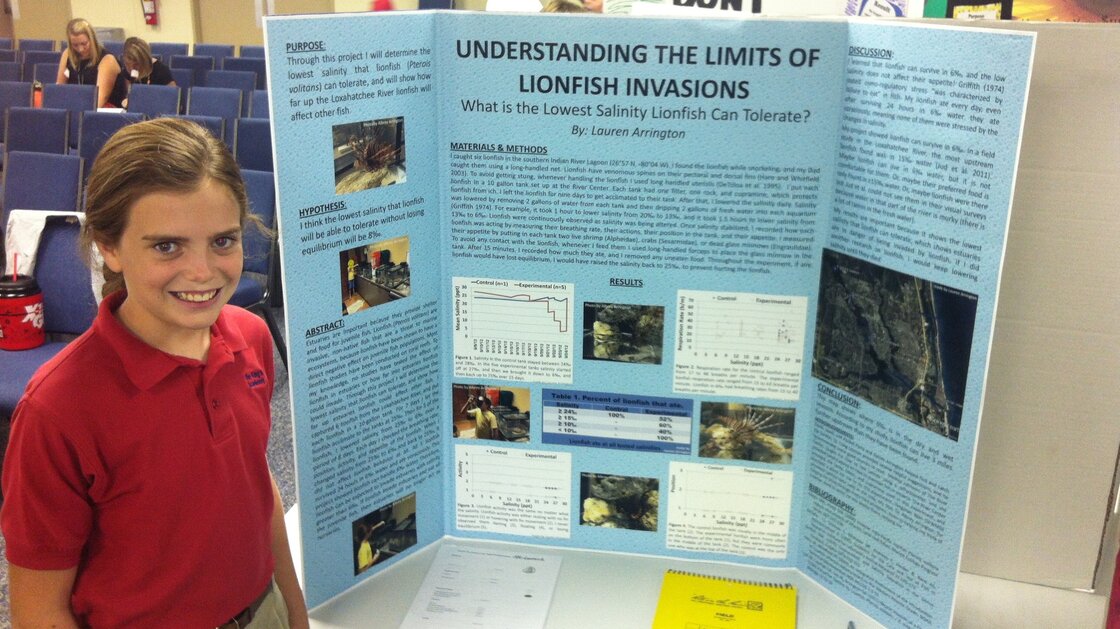When 12-year-old Lauren Arrington heard about her sixth-grade science project, she knew she wanted to study lionfish. Growing up in Jupiter, Fla., she saw them in the ocean while snorkeling and fishing with her dad.
Her project showed that the lionfish can survive in nearly fresh water. The results blew away professional ecologists. The invasive species has no predators on the Florida coast, so if they were to migrate upstream in rivers, they could pose a threat to the ecosystem.
 |
| Lauren Arrington's sixth-grade research project is cited in a science journal. [Courtesy of Lauren Arrington]. |
"Scientists were doing plenty of tests on them, but they just always assumed they were in the ocean," Lauren, now 13, tells NPR's Kelly McEvers.
"So I was like, 'Well, hey guys, what about the river?'"
In the beginning, she wanted to conduct her test by placing the lionfish in cages at different points in the river, but she had to simplify the project.
"So I was like, 'Well, hey guys, what about the river?'"
In the beginning, she wanted to conduct her test by placing the lionfish in cages at different points in the river, but she had to simplify the project.
"It was just a small, sixth-grade project, and I really didn't have all the tools necessary," she says. Her dad, who has a Ph.D. in fish ecology, suggested that she put the fish in tanks instead.
Lauren then put six different lionfish in six different tanks where she could watch her subjects closely. Lauren was given a strict set of rules by the science fair organizers. The most important one: Her fish could not die.
Lionfish had been found to live in water with salt levels of 20 parts per thousand. But no one knew that they could live in water salinity below that.
One of the six lionfish was her control fish, and the rest were the experimental fish. Every night for eight days, she would lower the salinity 5 parts per thousand in the experimental tanks. On the eighth day of her experiment, she found her experimental fish were living at 6 parts per thousand. She was amazed.
Her research did not stop there. Craig Layman, an ecology professor at North Carolina State University, confirmed Lauren's results. "He credited a sixth-grader for coming up with his idea," Lauren says ecstatically. Layman's findings were published this year in the science journal Environmental Biology of Fishes. Lauren is mentioned in the acknowledgments.
Lauren's father says he talks about science with her a lot. "We're a science bunch of dorks in our family," he tells McEvers.
Originally posted by NPR staff at NPR:
The Aquaculturists
This blog is maintained by The Aquaculturists staff and is supported by the magazine International Aquafeed which is published by Perendale Publishers Ltd.